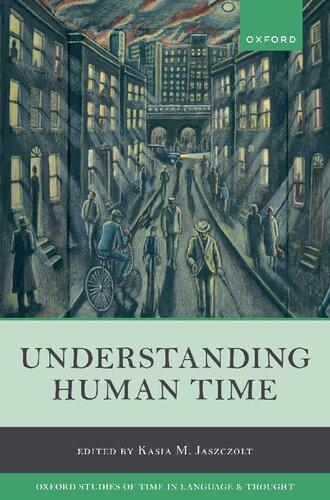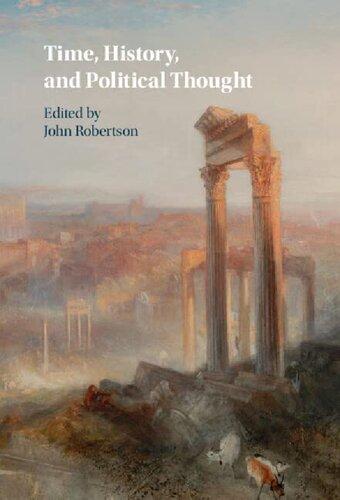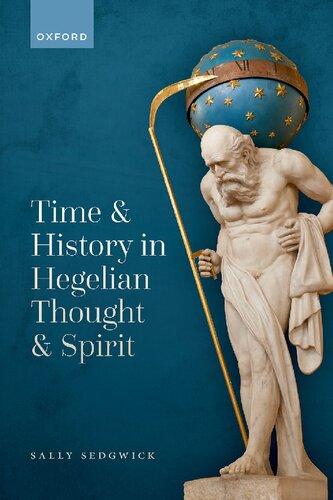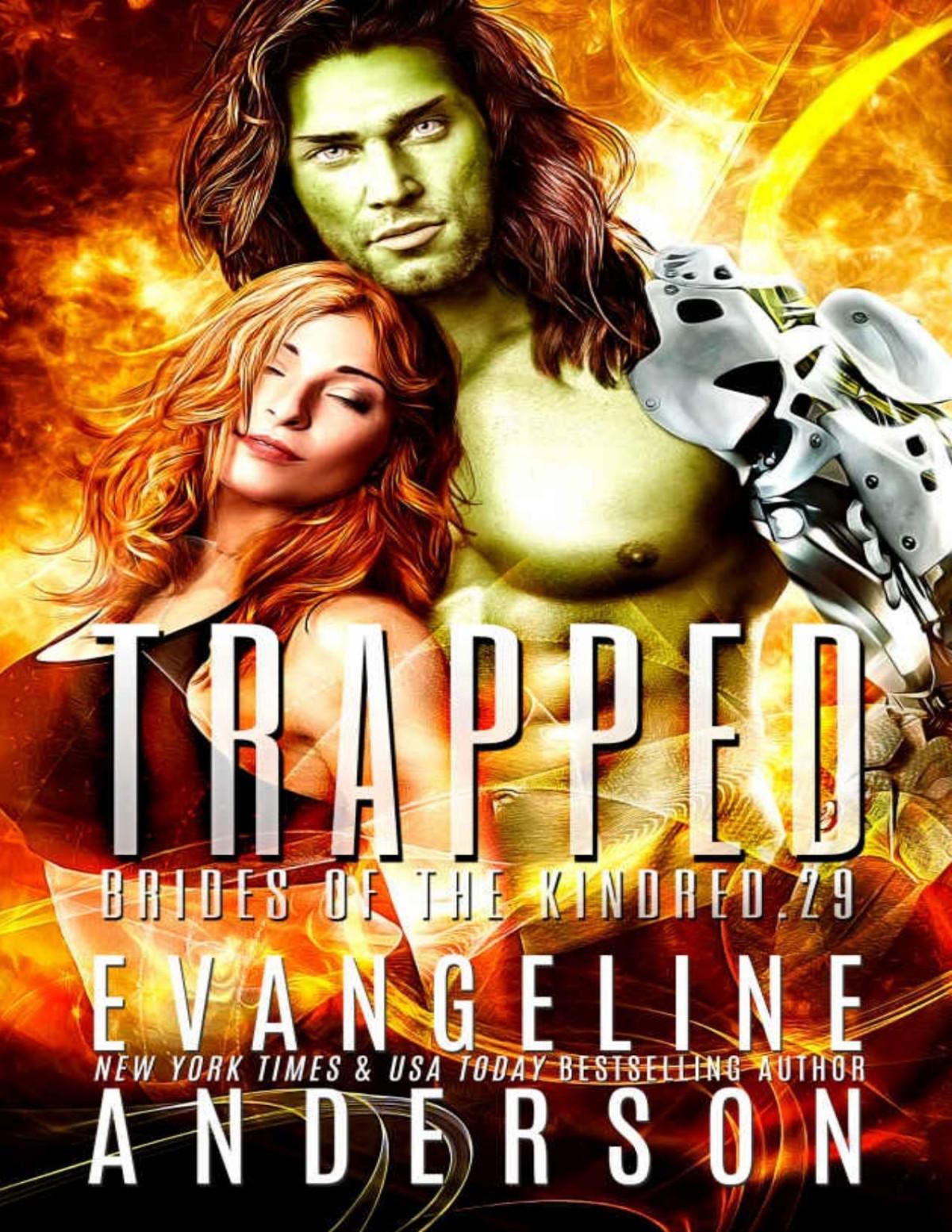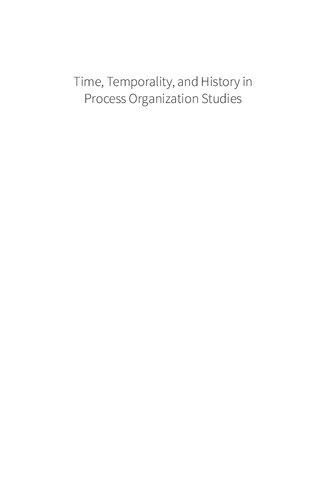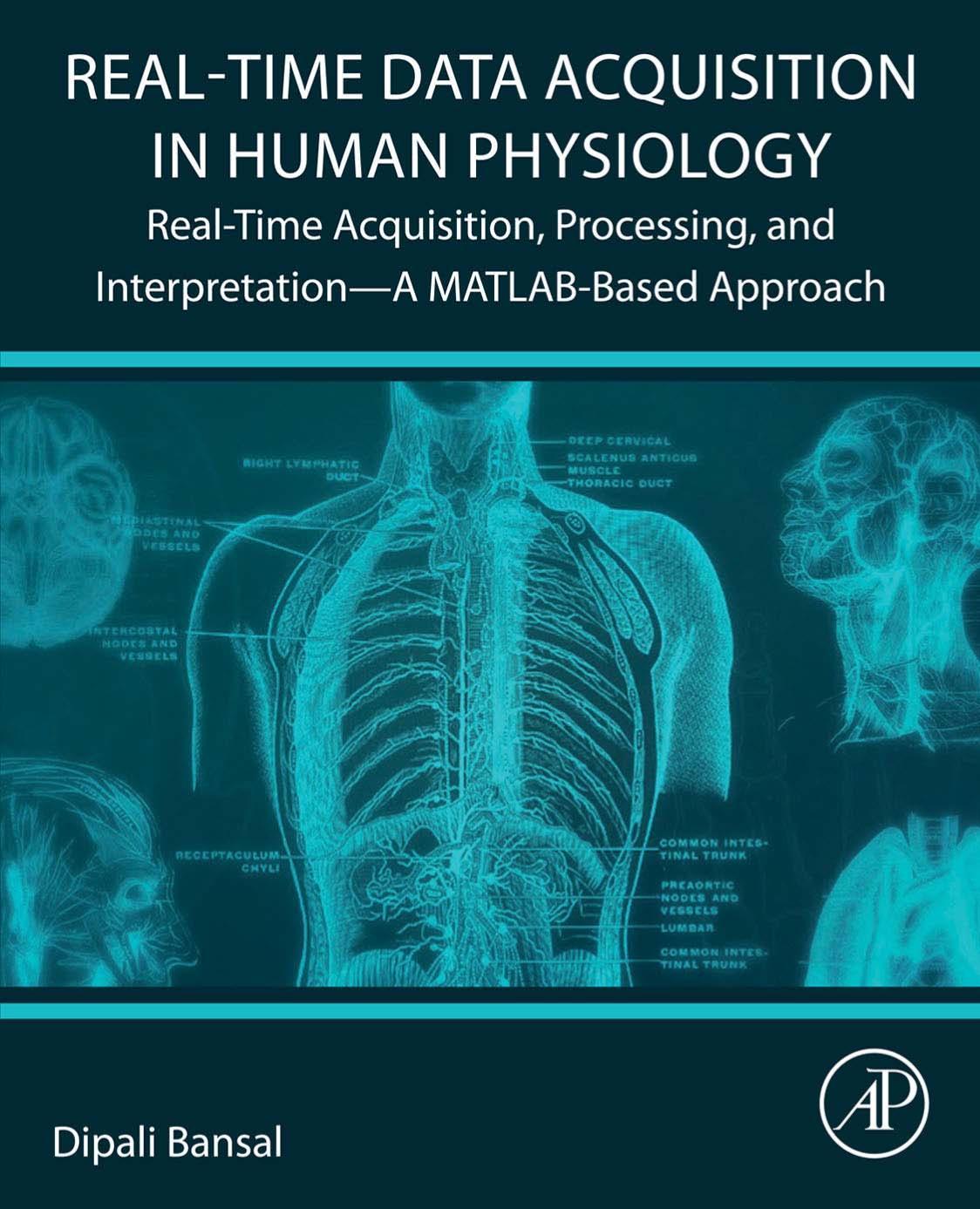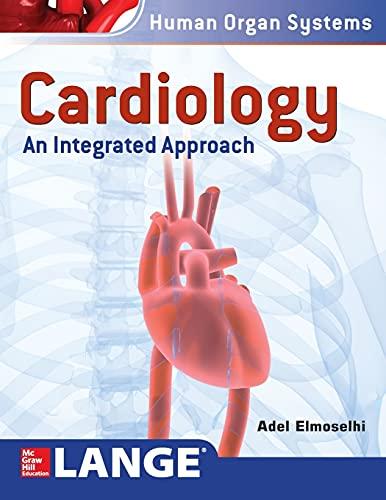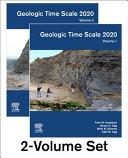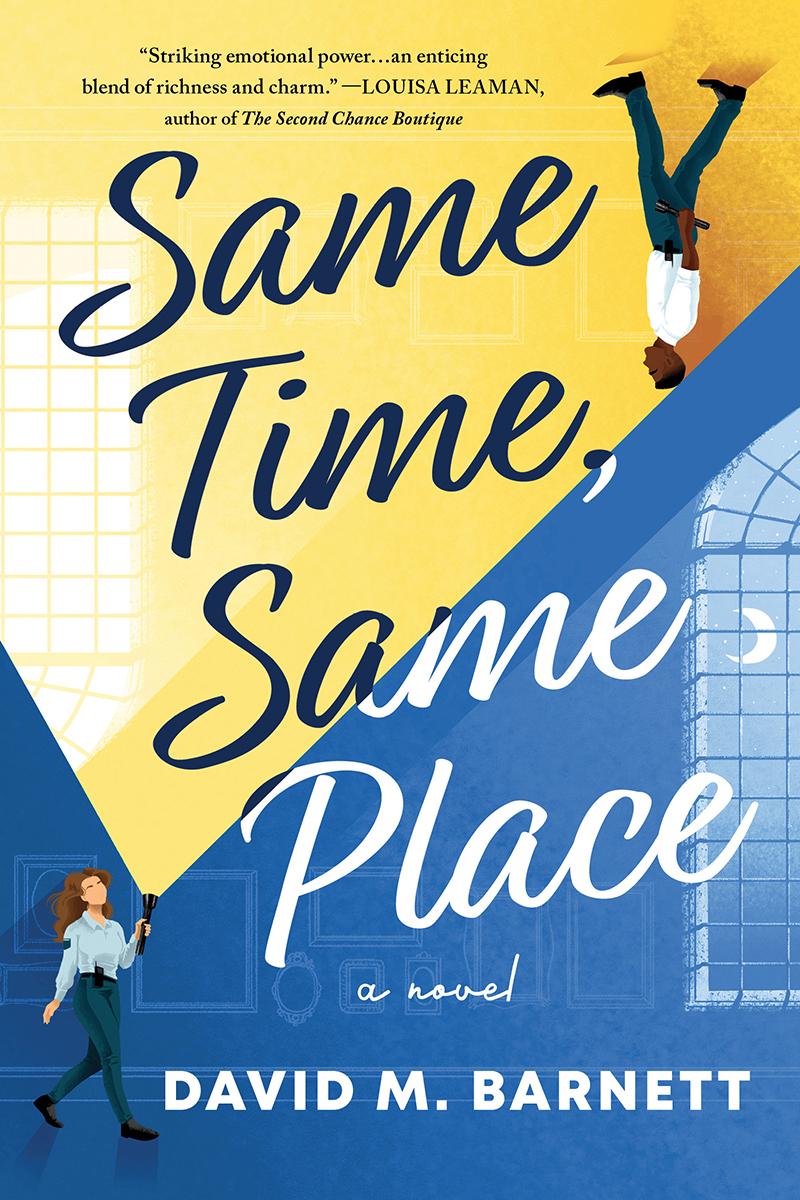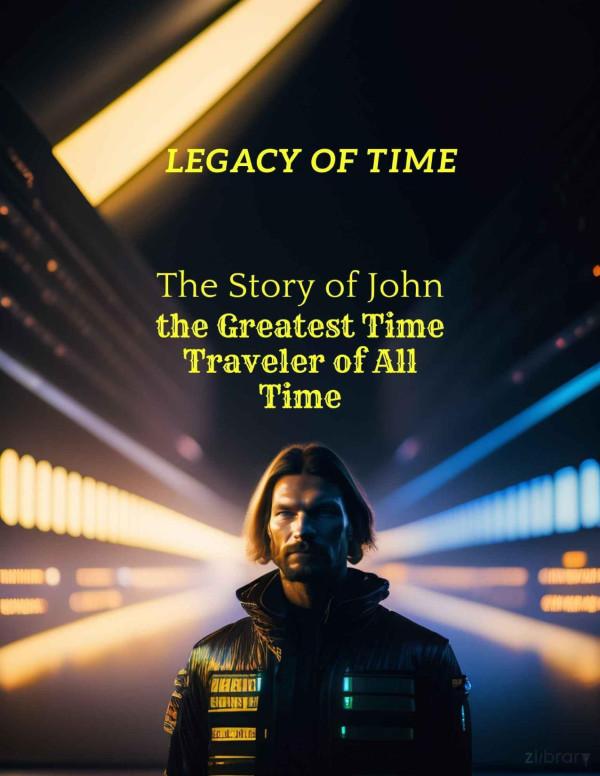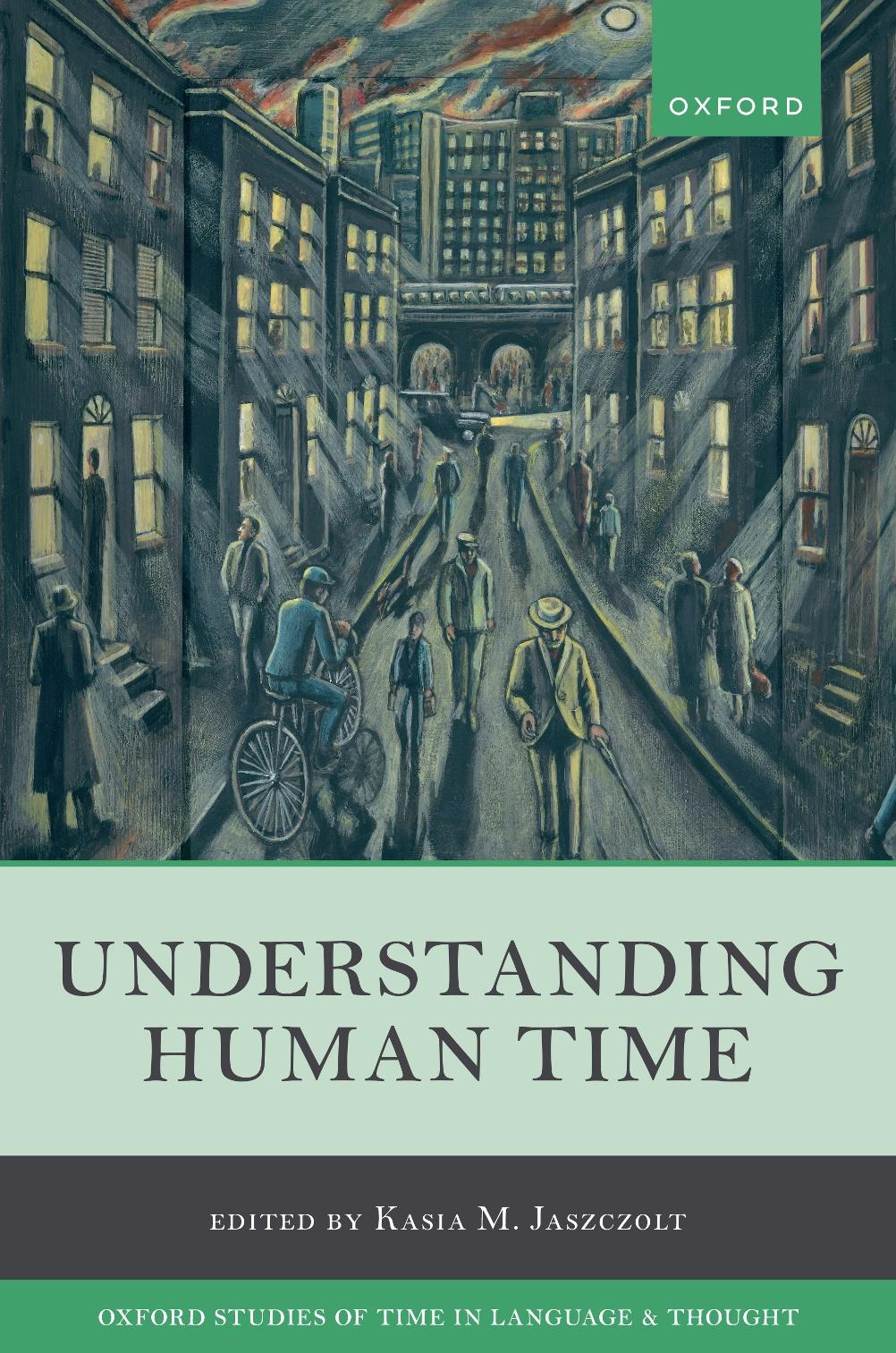Understanding Human Time (Oxford Studies of Time in Language and Thought) Kasia M. Jaszczolt (Editor) Visit to download the full and correct content document: https://ebookmass.com/product/understanding-human-time-oxford-studies-of-time-in-l anguage-and-thought-kasia-m-jaszczolt-editor/
More products digital (pdf, epub, mobi) instant download maybe you interests ...
Time, History, and Political Thought John Robertson
https://ebookmass.com/product/time-history-and-political-thoughtjohn-robertson/
Time and History in Hegelian Thought and Spirit Sally Sedgwick
https://ebookmass.com/product/time-and-history-in-hegelianthought-and-spirit-sally-sedgwick/
Trapped: Brides of the Kindred Book 29 Faith Anderson
https://ebookmass.com/product/trapped-brides-of-the-kindredbook-29-faith-anderson/
Time, Temporality, and History in Process Organization Studies Juliane Reinecke
https://ebookmass.com/product/time-temporality-and-history-inprocess-organization-studies-juliane-reinecke/
Real-Time Data Acquisition in Human Physiology: RealTime Acquisition, Processing, and Interpretation—A MATLAB-Based Approach Dipali Bansal
https://ebookmass.com/product/real-time-data-acquisition-inhuman-physiology-real-time-acquisition-processing-andinterpretation-a-matlab-based-approach-dipali-bansal/
Cardiology-An Integrated Approach (Human Organ Systems) (Dec 29, 2017)_(007179154X)_(McGraw-Hill) 1st Edition Elmoselhi
https://ebookmass.com/product/cardiology-an-integrated-approachhuman-organ-systems-dec-29-2017_007179154x_mcgraw-hill-1stedition-elmoselhi/
Geologic Time Scale 2020 Felix M. Gradstein https://ebookmass.com/product/geologic-time-scale-2020-felix-mgradstein/
Same Time, Same Place David M. Barnett
https://ebookmass.com/product/same-time-same-place-david-mbarnett/
Legacy of Time: The Story of John, the Greatest Time Traveler of All Time Sara Bahou
https://ebookmass.com/product/legacy-of-time-the-story-of-johnthe-greatest-time-traveler-of-all-time-sara-bahou/
UnderstandingHumanTime OXFORDSTUDIESOFTIMEINLANGUAGE ANDTHOUGHT GeneralEditors
KasiaM.Jaszczolt,UniversityofCambridgeandLouisdeSaussure, UniversityofNeuchˆatel
AdvisoryEditors
NicholasAsher,UniversitéPaulSabatier;JohanvanderAuwera, UniversityofAntwerp;RobertI.Binnick,UniversityofToronto;RonnyBoogaart, UniversityofLeiden;FrankBrisard,UniversityofAntwerp;PatrickCaudal,CNRS; AnastasiaGiannakidou,UniversityofChicago;HansKronning,Universityof Uppsala;RonaldLangacker,UniversityofCalifornia,SanDiego;AlexLascarides, UniversityofEdinburgh;PeterLudlow,NorthwesternUniversity;AliceterMeulen, UniversityofGeneva;RobinLePoidevin,UniversityofLeeds;PaulPortner, GeorgetownUniversity;TimStowell,UniversityofCalifornia,LosAngeles; HenriëttedeSwart,UniversityofUtrecht
PUBLISHED Time
Language,Cognition,andReality
Editedby KasiaM.JaszczoltandLouisdeSaussure
FutureTimes;FutureTenses
Editedby PhilippeDeBrabanter,MikhailKissine,andSaghieSharifzadeh
Time,Language,andOntology
TheWorldfromtheB-TheoreticPerspective by M.JoshuaMozersky
ThePresentPerfectiveParadoxacrossLanguages by AstridDeWit
UnderstandingHumanTime
Editedby KasiaM.Jaszczolt
UnderstandingHuman Time Editedby KASIAM.JASZCZOLT
GreatClarendonStreet,Oxford,OX26DP, UnitedKingdom
OxfordUniversityPressisadepartmentoftheUniversityofOxford. ItfurtherstheUniversity’sobjectiveofexcellenceinresearch,scholarship, andeducationbypublishingworldwide.Oxfordisaregisteredtrademarkof OxfordUniversityPressintheUKandincertainothercountries ©editorialmatterandorganizationKasiaM.Jaszczolt2023 ©thechapterstheirseveralauthors2023
Themoralrightsoftheauthorshavebeenasserted Allrightsreserved.Nopartofthispublicationmaybereproduced,storedin aretrievalsystem,ortransmitted,inanyformorbyanymeans,withoutthe priorpermissioninwritingofOxfordUniversityPress,orasexpresslypermitted bylaw,bylicenceorundertermsagreedwiththeappropriatereprographics rightsorganization.Enquiriesconcerningreproductionoutsidethescopeofthe aboveshouldbesenttotheRightsDepartment,OxfordUniversityPress,atthe addressabove
Youmustnotcirculatethisworkinanyotherform andyoumustimposethissameconditiononanyacquirer PublishedintheUnitedStatesofAmericabyOxfordUniversityPress 198MadisonAvenue,NewYork,NY10016,UnitedStatesofAmerica
BritishLibraryCataloguinginPublicationData Dataavailable
LibraryofCongressControlNumber:2022948347
ISBN978–0–19–289644–5
DOI:10.1093/oso/9780192896445.001.0001
PrintedandboundintheUKby ClaysLtd,ElcografS.p.A.
LinkstothirdpartywebsitesareprovidedbyOxfordingoodfaithand forinformationonly.Oxforddisclaimsanyresponsibilityforthematerials containedinanythirdpartywebsitereferencedinthiswork.
Generalpreface vii
Preface viii
Thecontributors xi
1.Introduction:Metaphysicaltime,humantime,and timeinlanguage 1 KasiaM.Jaszczolt
2.Tenseandemotion 11 SimonProsser
3.Anexplorationintoconstrualsofsubjectivetimeinpoetry 30 AnnaPiata
4.The2Dpast 60 GraemeA.Forbes
5.Counterfactualityaspragmaticinferencein perspectivalreadingsofPastConditionalutterances withmodalverbs:EvidencefromFrench 85 LouisdeSaussure
6.Avertive/frustrativemarkersinAustralianlanguages: Blurringtheboundariesbetweenaspectuo-temporal andmodalmeanings 107 PatrickCaudal
7.Onmodellingthefuture 174 M.JoshuaMozersky
8.Perceivingdirectionindirectionlesstime 199 MattFarr
9.Temporaltransparencyandtheflowoftime 220 GiulianoTorrengo
10.Doeshumantimereallyflow?Metaindexicality, metarepresentation,andbasicconcepts 244 KasiaM.Jaszczolt
11.UnderspecifiedtemporalsemanticsinPirahã: Compositionaltransparencyandsemioticinference
DanielL.Everett
Generalpreface Theseries OxfordStudiesofTimeinLanguageandThought identifiesand promotespioneeringresearchonthehumanconceptoftimeanditsrepresentationinnaturallanguage.Representingtimeinlanguageisoneofthemost debatedissuesinsemantictheoryandisriddledwithunresolvedquestions, puzzles,andparadoxes.Theseriesaimstoadvancethedevelopmentofadequateaccountsandexplanationsofsuchbasicmattersas(i)theinteraction ofthetemporalinformationconveyedbytense,aspect,temporaladverbials, andcontext;(ii)therepresentationoftemporalrelationsbetweeneventsand states;(iii)humanconceptualizationoftime;(iv)theontologyoftime;and (v)relationsbetweeneventsandstates(eventualities),facts,propositions,sentences,andutterances,amongothertopics.Theseriesalsoseekstoadvance time-relatedresearchinsuchkeyareasaslanguagemodellingincomputationallinguistics,linguistictypology,andthelinguisticrelativity/universalism debate,aswellasintheoreticalandappliedcontrastivestudies.
Thecentralquestionstobeaddressedconcerntheconceptoftimeasitis lexicalizedandgrammaticalizedinthedifferentlanguagesoftheworld.But itsscopeandthestyleinwhichitsbooksarewrittenreflectsthefactthatthe representationoftimeintereststhoseinmanydisciplinesbesideslinguistics, includingphilosophy,psychology,sociology,andanthropology.
Preface Linguists,philosophers,psychologists,poets,physicists,butoftenalsopeopleacrosseveryknownprofessionwanttogettothebottomofthemeaning oftime.Whatdoesitmeanthattimeflows?Scientiststellusthatitisjust adimensionofspacetime,sowhycan’tweconceptualizetimeassomething akintospace(unlesswetryvery,veryhard)?Also,whyaresci-finovelists, filmscriptwriters,andtheirrespectivereadersandviewerssofascinatedby timetravelanditsscientificunderpinnings?Whydoestimeflywhenwewant ittoslowdownanddragsonandonwhenwewantittospeedup?And,what exactlydoesitmeanthat‘timespeedsup’?Passingfasterthanasecondper second?Mostofall,howdoallthesequeriesandscrapsofinformationand experiencesumuptowhatwewouldliketocallthehumanconceptoftime? Or,perhaps,‘concepts’ifcross-culturaldifferencesarebetterforegrounded thanironedoutatsomeuniversallevel?Infact,howmuchinformationabout suchalevelofuniversalconceptsdonaturallanguagesreveal?Or,indeed,how muchdotheyrevealaboutculture-andlanguage-specificconcepts?
Allcontributorstothisuniquecollectionhavetheirownpreferredselections andrankingsofquestionsabouttime,spanningdifferentareasoflinguistics andphilosophy.Whatunitesushereisthegoalofsheddingmorelighton thehumanconceptoftime,approachingitfromvariousangles.However, theresultingcollectionismore(notless)closelyknitthroughitsmultidimensionality.Wheremost cross-disciplinarycollectionsarefoundwanting istheirunfulfilledaspirationtobeingtrulyinter-disciplinary.Theideabehind composingthisvolumeisthattrueinterdisciplinaritycansparklewhenideas ofdifferentcontributorsarejuxtaposedinawaythatformsaparticular roadmapthroughthetangleofquestionsaboutthehumanconceptoftime. Therefore,intheIntroduction,Iofferarangeofpossibledimensionsthatcan bepickedandchosenforsucharoadmap,followedbyonesampleroadmap selectedforthisvolume,pointingoutateverystephowadifferentpathcould havebeentaken,haddifferentdimensionsofinquirybeenforegroundedat thatparticularstep.Theideaissimple:weknowthatmeaningisdynamicand co-constructed,andassuchdoesnotbreakdownneatlytoparticularspeakers’ meanings(seee.g.ElderandHaugh2018foronesuchmodelandJaszczoltand
Berthonforthcoming foranoverview).Thisalsoappliestothemeta-levelof conceptconstructionorconceptunpacking—andinthisinstancethehuman conceptoftimeanditskins.Next,suchameta-levelco-constructioncanitself beamany-phaseprocess—beginningwithexternalizingideasandbrainstormingandendingwithfittingtheoutcomesinaparticularroadmap(seetheorder ofthechaptersintheContents),butalso,here,suggestingtheoptionsofother roadmaps(seeIntroduction),andfinallyleavingittothereaderstobounce theideasoffagainforthemselves.Thisproducesaninteractiveapproachto thesearchforunderstandinghumantime.Inotherwords,theprocessbegins inthemostfamiliarway,withdifferentindividual(butcalibrated)research questionsandproposedsolutions(phase1),followedbybouncingthemoff othercontributors’questionsandsolutions—ifsuccessful,thentothebenefitofsuchquestionsandsolutions(phase2).Hereiswhereourworkshop comesin: UnderstandingHumanTime,heldon9–10April2021—sadly,not inNewnhamCollege,Cambridgeasplanned,butvirtually,duetothepandemic,buthopefullywithnolessinterestandenthusiasm.Thediscussionsit generatedtakeustophase3—writingwhatfollows,furtherthoughtthrough withtheinvaluablehelpofReviewerstowhomIherebysendmywordsofgratitude.Phase4istobeattributedtoyourstruly,theeditor:extractingarange ofdimensionsofinquiryandusingthemasaguidefororderingthecontributionsandmakingthemspeaktoeachotherinordertocreatearoadmap throughthem.TheReadercanfollowtheroadmapor,withthehelpofmy otherexamplesofroadmapsintheIntroduction,followtheirown.¹ Doingthe latterrepeatstheprocess,withalltheadvantagesofsuchamulti-roadmap approach.Thisiswherethereisscopeforinterdisciplinaritytoevolvefurther: dependingontheselectedroadmapandthedimensionsaccordingtowhich itisdrawn,onecanbegintoaddressnovelquestionsabouthumantimeand stumbleacrossnovelperspectivesandanswers.
InadditiontoacknowledgingthehelpoftheReviewers,Iwouldalsolike tothanktheOUPCommissioningEditorJuliaSteerforhersupportand patience—ittooklongerthanplannedtoputthisvolumetogether,facing variousCovid-relatedrestrictionsanddelays.Next,IowethankstoMireia CabanesCalabuigforhereditorialassistance,especiallywithcollatingthereferences.Butmostofall,Iwouldliketothankmycolleagues—linguistsand philosopherswhoacceptedmyinvitationtocontributetothisratherspecial
¹ Ifollowedthisideaofapersonalizedjourneyonamuchlargerscaleinmyauthoredjourney throughsemantics,pragmatics,andphilosophy(Jaszczolt,2023)todemonstratehowgatheredwisdom canpointtodifferentnovelideasdependingonapathtaken.
x PREFACE
workshopandtheresultingvolume.Thebookhasalsobenefitedfrommyparticipationintheresearchproject CHRONOS:RethinkingandCommunicating Time (PID2019-108762GB-I00)fundedbytheSpanishMinistryofScience andInnovation(MCIN/AEI/10.13039/501100011033).
Cambridge,1August2022
Thecontributors PatrickCaudal (PhDUniversitédeParis-Diderot2000)isaresearchscientistatCNRS andU.Paris,LaboratoiredeLinguistiqueFormelle,France.Heisaspecialistinthe semanticsandpragmaticsoftense,aspect,andmodality(TAM),andanAustralianistfocusingnotablyontheverbsystemsofnon-Pama-Nyunganlanguages.Hehas extensivelyworkedonsemanticchange,languagecomparison/typologyandfieldworklinguisticsappliedtoAustralianlanguagesaswellasRomancelanguages,with atriplequantitative,experimentalandformalperspective.Hecurrentlycoordinates theFEMIDAL(‘Formal/ExperimentalMethodsandIn-depthDescriptionofAustralianIndigenousLanguages’)CNRSinternationalresearchnetwork(2021–2025), aswellasseveralOutreach/ScienceinSocietyresearchprojectsdedicatedtoIwaidja, anon-Pama-NyunganlanguagespokenintheCobourgPeninsulaarea.
DanielL.Everett isTrusteeProfessorofCognitiveSciences,BentleyUniversityin Waltham,Massachusetts,USA.HeisbestknownforhisworkonPirahãlanguageand cultureandforhisargumentsagainstsententialrecursionpostulatedinChomsky’s universalgrammar.Inadditiontoacademicpublications,heauthoredseveralpopularsciencebooks,including HowLanguageBegan:TheStoryofHumanity'sGreatest Invention (2017); DarkMatteroftheMind:TheCulturallyArticulatedUnconscious (2016); Language:TheCulturalTool (2012);and Don'tSleep,ThereAreSnakes:Life andLanguageintheAmazonianJungle (2008).Heiscurrentlyworkingontwobooks onthelinguisticsandphilosophyofCharlesSandersPeirce.
MattFarr isaphilosopherofscienceandlecturerintheDepartmentofHistoryand PhilosophyofScienceattheUniversityofCambridge.Hisresearchfocusesonthe metaphysicsandepistemologyoftimeandcausation,particularlywhatitmeansfor timetohaveadirection,theroleofcausalityinphysics,andthepsychologyoftimeand causation.Matt’sresearchhasbeenpublishedinphilosophyjournalssuchastheBritish JournalforthePhilosophyofScience and Synthese,andheiscurrentlywritingabook onthephilosophyandphysicsoftimedirection.MattreceivedhisPhDinPhilosophy fromtheUniversityofBristol,andhasheldpostdoctoralresearchfellowshipsatthe UniversityofSydneyandUniversityofQueensland.
GraemeA.Forbes isanHonorarySeniorLecturerinPhilosophyattheUniversity ofKent.Hedefendsadynamicviewoftime(TheGrowing-Blockview)according towhichchangeoftimehasnospatialequivalentandthepastissettledwhilethe futureisopen.Hisworkismainlyinmetaphysics,butencompassestopicsfrompragmatistphilosophicalmethodology,thoughepistemology,philosophyoflanguage,and philosophyofmind,toethics.
KasiaM.Jaszczolt (D.Phil.Oxon,PhDCantab,MAE)isaProfessorofLinguistics andPhilosophyofLanguageattheUniversityofCambridgeandProfessorialFellow ofNewnhamCollege,Cambridge.Shepublishedextensivelyontopicsinsemantics, pragmatics,andphilosophyoflanguage.Hercurrentinterestsarerepresentationof timeinlanguageanddevelopingaconceptualist-compositionaltheoryofmeaning indiscourse.Herauthoredbooksinclude Semantics,Pragmatics,Philosophy:AJourneythroughMeaning (2023,CUP), MeaninginLinguisticInteraction (2016,OUP), RepresentingTime (2009,OUP), DefaultSemantics (2005,OUP), SemanticsandPragmatics (2002,Longman)and Discourse,BeliefsandIntentions (1999,Elsevier).She co-authoredandco-editedtwelvevolumes,including TheCambridgeHandbookof Pragmatics (2012,CUP).
M.JoshuaMozersky isaProfessorofPhilosophyatQueen’sUniversityinKingston, Ontario.Hisresearchinterestsareinthephilosophyofscience,philosophyoflanguage,metaphysics,andpoliticalphilosophy.Hisessayshaveappeared,amongother places,in PhilosophicalStudies, Synthese, InternationalStudiesinthePhilosophyofScience,TheOxfordHandbookofTime,andTheBlackwellCompaniontoTime.Hisbook, Time,Language,andOntology,waspublishedbyOxfordUniversityPressin2015.
AnnaPiata isapostdoctoralresearcherattheUniversityofNeuchˆatel(Switzerland) andanadjunctlecturerattheUniversityofAthens(Greece).SheholdsaPhDinLinguistics(UniversityofAthens)andanMPhilinLinguistics(UniversityofCambridge). Herpublicationsincludearticlesinjournalssuchas Pragmatics&Cognition, Journal ofPragmatics, Metaphor&Symbol,and InternetPragmatics.Sheistheauthorofthe monograph ThePoeticsofTime:MetaphorsandBlendsinLanguageandLiterature (2018)andco-editorofthevolume TimeRepresentationsinthePerspectiveofHuman Creativity (2022).Herresearchinterestsareincognitivesemantics,pragmatics,and stylistics.
SimonProsser isReaderinPhilosophyattheUniversityofStAndrews.Heisco-editor (withFrançoisRecanati)of ImmunitytoErrorthroughMisidentification:NewEssays (CambridgeUniversityPress,2012),andauthorof ExperiencingTime (OxfordUniversityPress,2016).Hehaspublishedarticlesonavarietyoftopicsinphilosophyof mind,philosophyofperception,andmetaphysics,includingconsciousness,perspectivalthought,temporalexperience,mentalfiles,andemergentproperties.Muchofhis currentworkconcernsthefirst-personperspective.
LouisdeSaussure isProfessorofLinguisticsattheUniversityofNeuchˆatel(Switzerland).Hismainresearchareasaretense,aspectandmodality,lexicalsemanticsand pragmatics,post-Griceanpragmaticsandpersuasionindiscourse.Aftercompletinga PhDattheUniversityofGeneva,helecturedonphilosophyoflanguageattheUniversityofTexasatAustinandpursuedresearchatUniversityCollegeLondonasavisiting scholar.HefurthertaughtatvariousinstitutionsincludingtheÉcoledesHautesÉtudes enSciencesSocialesinParisandtheUniversitiesofFribourg,LuganoandAthens.He isafoundingmemberoftheCognitiveScienceCentreattheUniversityofNeuchˆatel andoftheresearchnetworkBeyondMeaningdedicatedtoexpressivityandemotion inlanguageuse.
GiulianoTorrengo isanAssociateProfessorattheDepartmentofPhilosophy‘Piero Martinetti’oftheUniversityofMilan,thefounderandcoordinatoroftheCentrefor PhilosophyofTime,andresearchfellowattheAutonomousUniversityofBarcelona. HeisthePIoftheproject CHRONOS:RethinkingandCommunicatingTime ofthe SpanishMinistryofScienceandInnovation.Torrengo’scurrentfocusofinterestisthe connectionbetweentemporalexperienceandthefundamentalfeaturesoftemporal reality.
Metaphysicaltime,humantime,andtimeinlanguage KasiaM.Jaszczolt
1.1 Timetoutcourt andthedimensionsofinquiry Understandingthehumanconcept(s)oftimestraddlesdifferentdisciplinary boundaries.Thisisabookforlinguistsandforphilosophers—withtheproviso thatitaimsatattractingbothcategoriesofreaders(ifindeedaboundarycanbe drawn)to both categoriesofpapers.Theaimismotivatedbythebigquestion ofthecharacteristicsofwhatwehumansunderstandastheconceptoftime andfeelasthepassageoftime.‘Ourtime’,humantime,isthetimeinthoughts, andassuch,timeinourepistemicattitudessuchasbelief(thattimepasses), knowledge(thatdeathisinevitable),orfear(thatIamgoingtobelate).It isalsothetimeofourfeelingsandsensations.Itisthetimethatwe(think we)experience,andassuchitistheBigUnknownthat,atoneend,touches uponthe realtime ofspacetimepursuedthroughthelawsofphysicsonthe micro-levelofhumanreality,and,attheother, timeinlanguageanddiscourse, pursuedbylinguistsonthemacro-levelofsocialrealityor,moretraditionally (andformally)alsoinabubbleofanabstractconstructofa languagesystem. Bothrelationsshedlightonit,buttheybothstillhidemysteriesandsecrets. Theyalsoobfuscateitbyaddingadimensiononwhichwehavetocalibrate whatexactlywetalkaboutwhenwetalkabout‘time’.
Thisvolumetouchesuponthemboth,combininginsightsintotheconcept oftimeandthefeelingofthepassageoftime(ifindeedthisiswhatitis— passageoftime—butreadon)withinsightsinto(i)howbesttoconceiveof realtime(throughquestionstodowithitsnature,asstaticordynamic),as wellasresearchinto(ii)usingtemporalexpressionsinnaturallanguage,or indeedexplicitlyspeakingabouttime.Inotherwords,windowsonhuman timeopenfromwhatweknowandthinkweknow(thatis,havewell-supported theoriesof)aboutourselvesandourcomprehensionoftheuniverse(here philosophicalaspectscomein)andwhatweknowandthinkweknowabout
ouractivitiesandbehaviourinit—forthepurposeofthisvolume,especially linguisticbehaviour.
Pertinentquestionsareampleandcanbearrangedalongseveraldifferentdimensions,suchasthefollowing.‘↔’standsforbi-directionaltravel (althoughsomedirectionswillbemorewell-troddenandmorefeasiblethan others).
[1] thefeeling,sensation,experienceoftimepassing ↔ theconcept oftime;
[2] speakingabouttime ↔ thinkingabouttime;
[3] thinkingintime ↔ theconceptoftime;
[4] theawarenessofhumantime ↔ theawarenessofrealtimeof spacetime;
[5] thepropertiesofhumantime ↔ thepropertiesofspacetime;
[6] temporalthoughts ↔ modalthoughts;
[7] temporalexpressions ↔ expressionsofmodalityandaspect;
[8] consciousness ↔ humantime;
[9] humanspace ↔ humantime;
[10] feelingoftimepassing ↔ emotions,
tonameafewseminalones.Ihavedeliberatelyarrangedthisselectionof dimensionsinanorderthatdoesnotattempttodistinguishbetweenphilosophical,linguistic,andpsychologicalquestionsinthattheveryraisond’être ofthiscollectionofpapersistodemonstratetheadvantageofthinkingoutsidesuchcategories—notmerelyoutsidetheorieswithinfieldsbutalsoreally, truly,andfreelyasanorganizedwhole,crossingdisciplinaryboundaries.Such aspectsanddimensionssumuptoaninvestigationintotherealityof timetout court,normallyseparatelypursuedwithinthemetaphysical,cognitive,andlinguisticdomain—withtheinputfrommicrophysicsatoneend,andhuman sciencesincludingpoeticsattheother.
Oneofthebasicquestionsiswheretimeistobefound.Onthelevelof thephysicallawsoftheuniverse,theanswerappearstobe:asdimensions ofspacetime.Butitisstilldebatedwhetherspacetimeexistsonthefundamentallevelofreality,or,ratherisitselfemergent,ashasbeensuggestedin theoriesofquantumgravity(seee.g. Rovelli2018).Andifitisemergent,one hastoaskwhatkindofmetaphysicalemergenceitis—thatis,howtime,as theemergentfeature,relatestothefeaturefromwhichitemerges:inadditiontotheassumedco-temporal material dependence,howontologicallyand causallyautonomousithastobe(seee.g. Wilson2021, 2022 onstrongand
weakdependenceandtypesofdependence;seealso Baron2019).Assuch, timeneednotbethoughtofasreducibletothislowerlevel:emergencedoes notmeanreduction(butseealso Jaszczolt2020 ontheexplanatoryroleof reductionism).Next,oncewemovetotheontologicallyautonomouslevelof organiclife,andespeciallybeingswithconsciousawareness,wecanlegitimatelyconceptualizethisautonomyoftimeasfundamentalityoftimeandas suchspacetime.Butthisisonlythefirsthurdle;thenextoneisthestepfrom realtimesoconceived,timeofthestaticuniverse,tothedynamic,flowing humantime.Here,again,givingourselvestheoptionofmovingbackandforth alongtherelevantdimension(dimension5)createsthemuch-neededconceptualframeinthat,ontheonehand,conceptualizationoftheuniversespecific tohumansallowsusspecificinsightsintothesymmetricaluniverse,obfuscatingothers,andbarringyetothers(dimension5above,forwarddirection;see e.g. Price1996),whileontheother,theunderstandingofthemicro-lawsof physicsallowsusamuchbetterinsightintotheemergentrealityofcomplex systemslikeourselves(dimension5,backwarddirection;seee.g.Ismael2016). Hereiswhere,assumingrealtimedoesn’tflowbuteventsareorderedasrelativelyearlierorlater(that,is McTaggart’s(1908) B-series),orassumingthe symmetricaluniverseandassuchMcTaggart’sC-seriesoftimethatnotonly doesn’tflowbutdoesnothaveadirectioneither(seeFarr,thisvolume),we beginaskingthequestionabouttheflow:howitisthatwefeelit(ifindeed wedo)andwherethisfeelingcomesfrom.Thegroundingisprovidedbythe conceptsofconsciousness,personalidentity,andself-awareness,inthatthe passageoftimecomeswiththeenduringself.Now,weeitherexperiencetime asifitwerepassing(phenomenalpassageillusionism,seee.g.Torrengo2017a, thisvolume; Prosser2012, 2013a, 2016)orweonlythinkwedo(phenomenal passageeliminativism;seee.g. Hoerl2014)inthatwemayonlybelievethatit passes(phenomenalpassagecognitivism;seeFarr,thisvolume,Sections8.4.1 and8.4.4).Onceweaddressthefeelings,wealsoaddressemotions(e.g. Piata 2018,thisvolume;Prosser,thisvolume).Thenwecanmovetothehuman conceptoftimeitself(e.g.Jaszczolt,thisvolume)andtothemostimportant sourcesofknowledgeaboutthisconcept,thatisitslinguisticrealizationsin differentlanguages,cultures(Caudal,thisvolume;Everett,thisvolume;Jaszczolt,thisvolume),functions,andlevelsoflinguisticanalysis(Saussure,this volume;Caudal,thisvolume;Piata,thisvolume).
Notethattheveryrepetitionsofthecontributionsperthemetestifytothe methodologyadoptedhere(andintheworkshopfromwhichthiscollection originated)ofamultidimensionalapproach,wherethebunchesofadopted dimensionsdifferfromchaptertochapterbutsubstantiallyoverlap.(Iwillrisk
hereaprogrammaticthoughtthatshouldsuchaprojectbedevelopedintoa principalresearchprogramme,theinsightsinto timetoutcourt wouldbefast forthcomingandexcitingindeed.)
1.2 Aroadmaptothecollection Inviewoftheseassumptionsandmethodology,thevolumeallowsfordrawing multipleroadmapsbetweenthechapters,wherebylinkscanbeestablished accordingtotheabove(andmore)dimensions.Iwillsuggestsomesample roadmapsherebut,toreiterate,theveryraisond’êtreofthiscompilationis todrawattentiontotheavailabilityofmanynovelpathsthroughresearchon time—realtimeandhumantime,herewithspecialemphasisonevidencefrom temporalityinlanguageanddiscourse.
Webegintheinquirywiththeimportanceofthe ego andinparticularwith theperspectiveitimposesoneventualities,thatiswithegocentricmental states.InChapter 2 (‘Tenseandemotion’),SimonProssertakesonboardthe well-rehearsed‘thankgoodness’argumentbywhich,originally,ArthurPrior attemptedtorescuetheviewthattimeflows—thatis,McTaggart’sA-theory, thatthepast,present,andfutureareallreal(alsoknownas‘tensism’,thatis, tensedviewonreality—nottobeconfusedwiththeuseoftheterm‘tense’ in‘grammaticaltense’).ThegistofPrior’sdefenceoftensismisthatthinking ofa,say,painfuldentalprocedureasbeing inthepast comeswithdifferent attitudesandemotionsthanthinkingofitas,say,beingonMondayat10am. But,asProsserargues,thescenariocanalsobeusedinconjunctionwiththe B-theoreticoutlook:timeassuchdoesn’tflowbutthoughtsaboutthepast, present,andfutureareegocentric—boundtothethinkerwhoassessestherelationbetweenaneventualityandthemselvesas,say,beinginthepast.Then,the explanationfortheemotionalattitudeofreliefcomesfromtheevolutionary utilityofsuchreactions.
Inourroadmap,thisgivesusseveralpossibleroutestotake:wecan probedeeperintothesubjectivityandemotionalattitudestotime(Piata,Torrengo);continueonthetopicoftenselessreality(Torrengo,Farr,Mozersky— again,invariableorders);pursuethefirst-personperspectiveontime(Jaszczolt);orgointotheexpressionofpast-tensereferenceinnaturallanguage (Saussure,Forbes)andthroughittocross-linguisticinsightsintotemporal referenceindiscourse(Caudal,Everett).Someroutesaremorediscernible thanothersbutpursuingallofthemmakessense.Herewechoosetofollow subjectivityandemotionsinthepoeticsoftime.InChapter 3 (‘Anexplorationintoconstrualsofsubjectivetimeinpoetry’),AnnaPiatashedsnew
lightonthehumanunderstandingoftimebyinvestigatinghowtemporal experience,andinparticulartheorderanddurationofeventualitiesandthe passageoftime,arecapturedinpoetry.Havingpresentedsomelandmarks inthephenomenologyoftime,shemovestothementalrepresentationsof theseaspectsoftemporality,findingthattheutilityoftimeforthesubjects makesagreatdifferencetoconceptualization,asreflectedintheutilized(often metaphoricalandopen-ended)expressions.Suchafunctionalistanalysisis tracedbacktotheideaofembodiedcognitionincognitivesemanticsthat locatestherepresentationofstatesandevents,includingtheirtemporalityand emotionalattitudestoit,inthehumanbody—arguably,makingthe‘subjective’ lesssubjectivethroughsuchinterdisciplinaryinsights.
Atthenextcrossroads,again,wearerelativelyfreetochooseapath.Inadditiontocontinuingstraightaheadtothesubjectivityoftemporalexperience butsteppingfromthelevelofpoeticstometaphysics(e.g.Torrengo,orbackto Prosserandthenforward),oneinvitingandsuitablychallengingpathisthat ofthesemanticsoftemporalexpressions—thequestionofmeaningandtruth asitsexplanans.InChapter4(‘The2Dpast’),GraemeA.Forbeslooksintothe metaphysicalsignificanceofgrammaticaltenseandaspect,pointingoutthat focusingonthesomewhatneglectedroleofaspect(thatis,situation-internal time)shedslightonthequestion‘WhenamI?’(meaningaskingaboutone’s objectivetemporallocation),inthat,whetherthesituationis,say,ongoingor completedcanmakeadifferencewhenassessedfromtheperspectiveofthe relativefuture.Hemakesuseoftheconceptoftwo-dimensional(2D)semantics,alsousingittoconfrontstubborncaseswherethetruthvaluechangesa posteriori,say,whenallcircumstancesofapasteventualityarerevealed.
Wecannowchoosetomoveaheadwiththequestionofsemanticandmetaphysicalutilityofgrammaticalcategoriesemployedforexpressingtemporal reference,alsostayingclosetothetopicofperspective-takingfocusedonin Forbes’paper.InChapter 5 (‘CounterfactualityaspragmaticinferenceinperspectivalreadingsofPastConditionalutteranceswithmodalverbs:Evidence fromFrench’),LouisdeSaussurelooksattherelativescopeofmodalityand tensemarkersinepistemicmodalconstructions(‘Johnmighthavebeensurprised.’),pointingoutthattheirFrenchcounterparts(‘Pierreauraitdûêtre surpris.’)giverisetoacounterfactualreading,therebysuggestingthattherelativescopeisnot MODAL>PAST,likefortheEnglishconstructions,butrather PAST>MODAL.Hetheninquiriesintothepossibilityofacompositionalexplanationthatwouldrevealthesourceofthepastnessoftheepistemicattitude inFrench,ascontrastedwiththepresent-timelocationinEnglish.Heoffersa linguistic-pragmaticsolutionconsistingofaperspectivalshiftthatallowsthe
potentialityofthesituationtobeseenfromapointofviewinthepast.Inother words,thetemporalityofthemodalpertainstothatperspectivaltimerather thantothetimeofspeech.Thissolutionfromperspectivalshiftmakesus thinkofourroadmapnotonlywithreferencetothepreviousstop(Forbes)but alsowithreferencetoProsser’schapter,suggestingapossibilityofyetanother promisingconceptualroutetounderstandinghumantime.
Counterfactuality,however,neednotbeconceivedofasaclear-cutcategory. Whetherwenowpursueapathofcross-linguisticinquiryintorepresenting time,ortocounterfactualityitself,orindeedtoaspectandevenemotions, wefindonourpathChapter 6,‘Avertive/frustrativemarkersinAustralian languages:Blurringtheboundariesbetweenaspectuo-temporalandmodal meanings’,inwhichPatrickCaudalgivesaninsightintotheunderstanding oftheflowoftimebyofferingatypologicalaccountofaspecificcategory ofmodal/temporalmarkersinAustralianlanguages—groupedasnon-PamaNyungan—notageneticgroupbutratheramade-upcategory,sotospeak, negativelydefined,spreadovermostoftheterritoryofmainlandAustralia, andofparticularsemanticinterestduetotheirparticularmorphologicalcomplexityandpolyfunctionalityofcategories.Thecategoryhelooksintoisthat ofgrammaticalavertiveandfrustrativemarkers(oftencalled‘proximative’), thatisforegrounded(grammaticalized)expressionsofexpectationsanddisappointments(‘Henearlyleft’;‘Hetriedtoleave’;‘Hecameinvain’).Assuch, theserefertonegativepastevents,pastmodals(suchasdeonticorvolitional), andpastimperfectivemarkers(prospectiveandprogressive).Thecompositionalstructureofsuchmeaningsisrevealedthrougharangeofidentified patterns.Therichnessofinformationtheyconvey,includingthecaseofa mistakentakeonaneventualityandaneventnotleadingtodesiredresults, suggestsacomplexconstrualofevents,associatedwithasocialconstrualof timewhereactualandcounterfactualeventsformacontinuum.
Wecannowcontinuewithcross-linguisticvariationinexpressingtemporal reference(Everett),or,inamoreunorthodoxway,askaboutthepropertiesofthepastandthefuture,thecomprehensionofwhichsuchlinguistic expressionsreveal.Ourroadmapcontinueswiththelatter,movingtothe ontologicalunderpinningsofthesemanticsofsentenceswithfuture-timereference.InChapter 7 (‘Onmodellingthefuture’),JoshuaMozerskyaddresses epistemic,semantic,andontologicalindeterminacyofthefuture,focusingon thedependencyofthesemanticontheontological.Onanontologicalmodel ofbranchingfuture,utterancesaboutthefutureareneithertruenorfalsesimpliciterbutratheraretrueonsometimelinesandfalseonothers—becoming truewhentimemovesonalongoneofthebranches,sotospeak,causing
attritionoftheothersateachconsecutive‘present’.Needlesstosay,thisis wheretheproblemstarts.Hearguesthatbranchattritiondoesnotfollow fromamodelofthedeterminatepast.Thisleadshimtotheconclusionthat semanticsoftemporalityhastobefoundedonstatictimeofB-theory,with determinatepast,present,andfuture,inwhichthepassageassociatedwiththe waywethinkandspeakisaccountedforinaseparateway.Hereheproposes anexplanationfromatheoryoffour-dimensionalspacetime—amodelusing ‘temporallyorientedvectorfield’thatdeterminesanabsolutefutureforeach spacetimepoint.Allinall,heconcludes,wehavetolookattimebothfromthe external(asabove)andtheinternalperspective,wherethelattercomeswith retainingthoughtsinmemory,while‘sliding’,sotospeak,alongthetimelineof ourhuman,dynamictime:whatisfuturewillbepresentandthenpast.And assuch,determinateornot,itwillremainunknownforsometime(nopun intended).
Thisinterdisciplinarylandmarkontheroadmapcantakeusbackto thetruth-conditionalsemanticsoftemporalexpressions(Forbes),toother B-theoreticsolutionstoexperiencedtimeflow(Torrengo),orfurtherintothe questionofdirectionalityoftime.Wetakethelatterpath.InChapter 8 (‘Perceivingdirectionindirectionlesstime’),MattFarrdefendstheviewthattime hasnodirection(providingintheprocessausefuloverviewofwhatdirectionalityoftimecanmeanondifferentphilosophicalaccounts)andlooksatthe compatibilityofthisC-theoreticpicture(McTaggart1908)withtheexperience oftimeflow;althoughsymmetricaltimehasbeenwellsupportedbytheoriesof theuniverseinmicro-physics,itdoesnotfitwellwithourhumanexperienceof time.Hisargumentistwofold:showingthattheperceiveddirectionalitydoes notposeaproblemforsuchadirectionalrealityoftime,andshowingthatCtheorycaninfactexplainhumanexperienceofdirectional,dynamicreality. Next,helooksatanumberofwaysinwhichtheexperienceoftimepassage hasbeenexplained(orexplainedaway)andconcludesthatonecanpickand choosebetweenthem(ashetentativelydid),leavingtimelessrealityintact.
MovingonfromthesomewhatunderappreciatedC-theorytothestandard disputebetweenflow/noflow(thatis,A-theory/B-theory),explainingaway thepassageoftimenowcontinuesinChapter 9 (‘Temporaltransparencyand theflowoftime’).GiulianoTorrengodiscussestherelationbetweenthetemporalpropertiesofexperience(suchasduration)andtemporalpropertiesof theobjectsofthisexperience—say,thedurationofanevent.Therelationcan gobothways:(i)experiencecaninheritthetemporalstructureofanevent,or (ii)experiencecan project temporalstructureontoanevent.Therealquestionappearswhenweaskaboutawareness.Forexample,accordingtothe
latterdirection(projection),anunfoldingperformanceofasonatahasacertaindurationbecauseourlisteningtoithasthisduration.Butinorderfor thistoworkwewouldhavetobe aware ofthisdurationoflistening.Thefirst (inheritance)directionsuffersfromananalogousmissinglink.Pointingout thismissinglinkaddsanewargumenttohisoverallprogrammeofrepudiatingtemporaltransparency,or,putsimply,denyingthatweareawareof,say, thedurationofapieceofmusicpriortobeingawareoftheanalogouspropertyofourlisteningtoit.Allinall,wefeelthattimeispassingbutthisisnot anexperienceofthepassageoftimebutofsomethingelse,‘phenomenologicallymodified’tofeelthatway.Itallboilsdowntotheawarenessofthewayin whichaperformanceofasonataispresentedtooursenses.Andthiswayfeels likemoving—orsomehow‘flowy’.Butitisnotreally time thatwerepresent.
Now,wecaneitherincorporatethatlandmarkonaroutebackthrough ProsserandMozersky,or,inthespiritoftheinnovativemethodology andcross-disciplinarycross-feeding,moveontoargumentsfromlinguistic semanticsthattimeisreally‘somethingelse’.(Yes,literally,notjustcolloquially.)Onthelatterpath,wemoveontoChapter 10 (KasiaJaszczolt,‘Does humantimereallyflow?Metaindexicality,metarepresentation,andbasicconcepts’)thatbringstogetherthemetaphysicsoftime(timeM)andlinguistic evidenceontheconceptualizationoftime(timeL),inordertoaddressthe questionofwhyhumantime(or,epistemologicaltime,timeE)appearstoflow. Followingemergentistviews,indexicalityoftimeistakentobedependent ontheindexicalityofthefirst-personperspective—aconstrualthatIcallthe ‘metaindexicality’oftime.ThisexplainstheapparentflowoftimeE andthe apparentincompatibilitywithtimeM.AfurtherargumentforpossiblecompatibilitycomesfromthefactthattimeM asunderstoodinmodernphysicspercolatestocommonknowledgebutonlyassemi-understood,semi-propositional (Sperber),representationalbeliefs.Thissemi-propositionalcharacter,paired withtheindexicalityofthe ego-perspective,explainstheapparentflow,aswell astheapparentvariablerateoftheflow.Next,Imovetothefollow-upquestion inwhatsense timeisdynamic,arguing,withthehelpofcross-linguistic evidence,thatapparentlydynamictimeE isessentiallystatic;itisacomplex conceptthatdecomposesintoconceptualbuildingblocksthatare(epistemic) modalincharacter.Onthelevelofthesebuildingblocks,timedoesnotflow; itonlyflowsontheleveloftheirculture-andlanguage-specificcombinations.Finally,Iproposehowthisdynamicitycanbeformalizedincontextualist semantics.
Herewecanrevisitphilosophicalargumentsagainstthetimeflowfromthe previouslandmarks,orfollowalinguisticrouteandmovebacktomodality
asanexplanansfortemporalreference.Orwecanmoveforwardonthe pathoflinguisticdiversitytoChapter 11 (‘UnderspecifiedtemporalsemanticsinPirahã:Compositionaltransparencyandsemioticinference’),inwhich DanielEverettanalysesthegrammarandsemanticsoftemporalityinPirahã, anindigenouslanguagespokenintheAmazon.Pirahãhasaspectualsuffixes, suchasforexampletelic,continuativeorfrustrative(seethesummaryof Chapter6above)butnotgrammaticaltense.Neitherdoesithavemarkersthat locateaneventualityunambiguouslyinthepastorinthefuture.Inaddition,it lacksperfecttensesandthemeaningassociatedwiththem.ThismakesEverett rethinktheuniversalityoftheReichenbachian(Reichenbach1947)logicof tensesthatutilizesspeechtime,eventtime,andreferencetimeascorrelates, inthatthecorrelateofreferencetimeappearstobeabsent.Next,hesuggests thatculturepermeatessemanticsandaffectsittoanextentgreaterthanformalfeaturesofthelanguagesystemdo.Hetalksabout‘degreesoffit’between morphosyntacticstructures,meanings,andcultures,whichcallsforadopting amorepractical,common-sense,orinference-basedideaofcompositionality, wherebymeaningsarecompositional not onthelevelofsyntacticstructures butonthelevelofculture-infusedinterpretations.(Inourroadmap,apath backtoChapter10andcontextualistDefaultSemanticsemployedtherewould bepertinent.)Historically,Everettfindsconceptualrootsofsuchcontextualinference-drivencompositionalityinPeirce’ssemeiotics.Languages,heclaims, canbeclassifiedonthescaleoftheircompositionaltransparency.Butconceptualtransparencyisnotamatterofvariation:weinfermeaningbecause ourspeciesdevelopedtheabilitytoinferfromsigns—fromallkindsofsigns thatpresentthemselvesassourcesofinformation.(NotethatanotherpossibleroutebacktoProsser’sevolutionaryexplanationofemotionsbecomes evidenthere.)Allthispertainstotemporallocation,wheredifferentcultures comeforegroundingdifferenttemporalconcepts.
Culturalandlinguisticdiversityleadtothequestionastowhetherthere indeedisthehumantime—somethingwediscernasa‘humanway’ofthinking abouttime.Perhapsthediversityandthelackofdirectcorrelatesbetweenlanguagespointtowardssuchadegreeofrelativity(oratleastcorrelation)thatit overshadowswhatcouldusefullybethoughtofasuniversal?Acrossthelandmarksofthisroadmap,thehumantimestandsforinnerexperience(oftime orsomethingelse),withitssemblanceofpastness,‘nowness’,andfuturity,as wellassubjectivelyassessedduration.Philosophersstillinquireintowhatitis thatweactuallyexperienceandhowittranslatesintobeliefsabouttemporal locationandduration,offeringamultitudeoftheories(someofthemhelpfully reviewedinwhatfollows).Butitisalsolinguisticdiversitythatallowsustoget
aglimpseofwhatreallymattersabouttime,andassuchaninsightintoits properties.Since(note:‘since’ratherthan‘if’forthepurposeofthisvolume) timepassageisthehumantakeonstaticrealtimethatonlyemergesonthelevel onwhichitisofsomeuse,itisofparamountimportancetosearchforwhat this‘take’reallyisandwhatitdependson.Andsearchwedo,indifferentdisciplines,justnotoftenenoughinaboldcross-disciplinaryandinter-disciplinary way.
Toreiterate,manyotherroadmapscanbedrawn,utilizingthechoiceof dimensions[1]–[10]fromSection 1.1 andaddingothers.Itishopedthatthis ‘informedcombinatorial’,sotospeak,approachwillhelpwithdiscovering suchnovel,interdisciplinary(oratleastcross-disciplinaryifrecalibrationis moreofanissue)slantsontheBigQuestionstodowithhumantime.So, followmyroadmap,ordrawyourown,don’tskipphilosophersorlinguists, readthemboth,andenjoytheexperience—thetimespentonitwillcontract ifyoudo!
Tenseandemotion SimonProsser
2.1 Introduction IftheB-theoryoftimeistrue,thenwhydowesay‘thankgoodness’,andfeel relief,whenatraumaticeventisover,andinthepast,butexperiencefeelings ofapprehensionwhenitisinthefuture?Ishallsuggestatleasttheoutlineof ananswer.Indoingso,Ishalldescribethespecialkindsofegocentricmental statesthatonemustbein,inorderforcertainkindsofemotionalreactionsto aneventtoberational,orappropriate.Thiswillalsoaddtoacertainpictureof thekindsofegocentricmentalstatesthatare‘essential’inorderforonetobe abletointeractwiththeworldaroundone,andwhichcharacterizethefirstpersonperspective.
Arthur Prior(1959),whooriginallyputforwardthe‘thankgoodness’challenge,heldthatonlya‘tensed’metaphysics,inwhichthereare mind-independent,objectivefactsaboutwhichtimesandeventsarepast, present,orfuture,couldexplainhowsuchadifferenceinattitudescouldbe justified.Formanyyearsthiswasregardedasanimportantchallengetothe ‘tenseless’,or‘B-theory’metaphysics,accordingtowhich,althoughthereisa realtimeseries,andhenceanobjectiveorderingoftimesandevents,thereare notimesontheseriesthatareobjectivelypast,present,orfuture,andthereis nosuchthingasthe passage oftime.FortheB-theorist,timeisinmanyways similartospace;theworldisextendedintime,muchasitisextendedinspace. Justasobjectsindifferentlocationsinspacecoexistonanequalfooting,so, accordingtotheB-theory,doeventslocatedatdifferenttimes.Changestake place in time,butconsistonlyintherebeingdifferentstatesofaffairslocated atdifferenttimes.¹
AccordingtoPrior’spreferredmetaphysics,usuallyknownthesedaysasthe ‘A-theory’or‘tensed’theory,andoftenregardedasthe‘commonsense’viewof
¹ ForaclassicdefenceoftheB-theory,anddiscussionofA-theoreticalternatives,see Mellor (1981, 1998).SeealsoFarr(thisvolume)andMozersky(thisvolume).
SimonProsser, Tenseandemotion.In: UnderstandingHumanTime.EditedbyKasiaM.Jaszczolt,OxfordUniversityPress. ©SimonProsser(2023).DOI:10.1093/oso/9780192896445.003.0002
time,thetimeseriesitselfchangesastimepasses.Onthisview,whenIdreada forthcomingdentalappointment,Ihavereasontodosobecauseitissimplya factabouttheworld—afactaboutrealityasawhole—thattheappointmentis inthefuture(thefuture—notjustmyfuture).And,similarly,aftertheappointment,Ihavereasontofeelreliefandsay‘thankgoodnessthat’sover’because timehaspassedandrealityhasnowchanged,andthedentalappointmenthas gonefrombeinginthefuturetobeinginthepast.Itisthischangeinreality itselfthatjustifiesthechangeinmyattitudetotheevent.Differentrealities justifydifferentattitudes.
ThechallengefortheB-theorist,bycontrast,istoexplainwhyitcanbe appropriatetotakedifferentattitudesatdifferenttimestotheverysameevent, giventhat,accordingtotheB-theory,nothingaboutthetimeseriesitselfever changes.Onewould,itseems,betakingconflictingattitudestowardsthevery samereality.AsanumberofB-theoristshavenoted,oncloserinspection,itis notentirelyclearthattheA-theoristisreallybetteroff,foritisnotimmediately clearwhyatraumaticeventbeingintheobjectivepastorfutureshouldexplain theappropriatenessoftakingdifferentattitudestothatevent,letalonewhy oneshouldtakethespecificattitudesofdreadfollowedbyrelief.² Nevertheless,whateverproblemsmayfacetheA-theory,thechallengetotheB-theory remains;anexplanationisneededbeforethetheorycanberegardedasfully satisfactory.
MorerecentdiscussionsbyB-theoristshaveassumedthatthephenomenon towhichPriordrewattentionwasjustanexampleofthemoregeneralphenomenonofthe essentialindexical (Perry1979),accordingtowhichthe thoughtsthatweexpressusingindexicaltermslike‘I’,‘here’,and‘now’play essentialpsychologicalrolesinbringingaboutactions(forthesepurposes,an indexicaltermisanylinguisticexpressionwhosesemanticvaluevariessystematicallywithcontext).Forexample,ImaybelievealldaythatSPisindanger, butitisonlywhenIcometobelievethat I amindanger(wheremytokenof ‘I’referstoSP)thatItakeevasiveaction.Or,ImaybelievethatStAndrews wouldbeagoodplacetodigforgold,butitisonlywhenIcometobelieve that here wouldbeagoodplacetodigforgoldthatIstartdigging.Finally,to borrowatemporalexamplefromPerry,Imaybelievealldaythatthemeeting isat3pm,butitisonlywhenIcometothinkof3pmas now thatIrushto themeeting.Onthefaceofit,thethoughtthatthemeetingstartsat3pm,and thethoughtthatthemeetingstarts now (wherethatthoughtoccursat3pm), bothrepresentthemeetingashappeningatthesametime;butitisonlywhen
² Seeforexample Garrett(1988)
thetimeofthemeetingisthoughtofinaspecialway,as now,thatthethought leadstoaction.Thesimilarity,inthisrespect,between‘I’,‘here’,and‘now’has suggestedtomanyB-theoriststhatPrior’sexampletellsusnothingspecifically abouttime.Iagree,butthereismoretosay.
Morerecently,however,scepticismhasbeenexpressedbysomephilosophersaboutthedoctrineoftheessentialindexical(inparticularsee Millikan 1990; CappelenandDever2013; Magidor2015).Accordingtothem,thefact thatthechangeinmybehaviouroccursonlywhenIgofromthinkingofthe timeofthemeetingas‘3pm’tothinkingofitas‘now’showsonlythatthisis acaseofthefamiliarphenomenonofreferentialopacity.Asimilarchangein mybehaviourmaybebroughtaboutbyachangefromthinkingofapersonas ‘NormaJeaneMortenson’tothinkingofthemas‘MarilynMonroe’.Muchof thefocusofthisdiscussionhasbeenonactions,thoughCappelenandDever givebroaderargumentstotheeffectthatthereisnothingspecialorfundamentalaboutthefirst-personperspective(whichiscommonlyassociatedwiththe useoftermslike‘I’,‘here’,and‘now’).Idisagreewiththisbroaderclaim.Ihave arguedinpreviousworkthatalthoughitistruethatindexicalitypersehasno specialrole,thereareassociated egocentricmentalstates thatdoindeedhave anessentialroleinaction(Prosser2015).
Inthischapter,Ishallfocusonemotionsratherthanactions,thoughIshall notesomeobviousconnectionsbetweenthem.Emotionshavereceivedvery littleattentioninthedebateoveressentialindexicals.ByusingPrior’s‘thank goodness’caseasmycentralexample,Ishallexplainwhycertainemotional reactionstoaneventareappropriateonlywhentheeventisthoughtofasbeing past,present,orfuture,wherethesetermsareunderstoodinamannercompatiblewiththeB-theory.Thinkingintermsofpast,present,orfutureispartof thebroaderphenomenonofadoptingthefirst-personperspective,andadopting thisperspectiveisessentialtoavarietyofemotionalreactions;thesereactions arenotappropriatewhenthesamestatesofaffairsarethoughtoftenselessly or,aswemightequivalentlysay,fromthethird-personpointofview.Myaim isthereforetodotwothingsatonce:firstly,IshalladdtotheproperunderstandingofPrior’s‘thankgoodness’puzzlefromaB-theoreticpointofview, andsecondly,Ishallprovideanewkindofresponsetoscepticismaboutthe essentialpsychologicalroleofthefirst-personperspective.
2.2 Indexicalpronounsandegocentricpredicates IshouldstartbysayingsomethingaboutwhatItaketobetherelationbetween theindexicalpronoun‘now’andpredicateslike‘past’,‘present’,and‘future’.
Inmyview,thephilosophicaldiscussionofthefirst-personperspectivehas focusedrathertoomuchonwordslike‘I’,‘here’,and‘now’,andhasnotpaid sufficientattentiontoexpressionslike‘near’,‘far’,and‘totheleft’,aswellas ‘past’,‘present’,and‘future’,allofwhichIshallrefertoas egocentricpredicative terms,or egocentricpredicates forshort.Itiseasytofindexamplesshowing thatthoughtsexpressibleusingegocentricpredicatesplaythesame‘essential’ roleforactionasthoseexpressibleusing‘I’,‘here’,or‘now’(and,asweshall see,thesameappliestocertainemotionalreactions).Perhapsitissometimes assumedthatwhenonethinksthatthereisdangernearby,whatonereally thinksisthatthereisdangernearto me,andthatitistheunstatedindexical ‘me’thatisessentialforaction.Butonecannotmakethesameclaiminthe temporalcase;aneventthatisinthepastcannotliterallybeunderstoodjust asstandinginsomerelationtome,forImayhavealsoexistedbeforetheevent, andthereforestand(orstood)inmanydifferenttemporalrelationstoit.Atany rate,theB-theoristmustsaythis,sincetheB-theoristmustregardapersisting personasatemporallyextendedentity.³ Ishallsuggest,inwhatfollows,that thereisinfactacrucialrolefortherelevanttemporal‘stage’ofaperson;but notasthereferentof‘I’.
Thefocusonindexicalpronouns(‘I’,‘here’,‘now’)has,Ithink,createdan impressionthatthe‘essentialindexical’phenomenonisamatterofthinking ofaperson,place,ortime,inaspecialway,perhapsundersomekindofspecialindexicalmodeofpresentation(whateverthatwouldmean).Ithinkthis isamistake,andhasledtomuchconfusion.Inmyview,theexplanationfor theapparentlyspecialroleoftheseindexicaltermsliesnotintheindexicalityitself,butinthefactthatauseofanysuchtermimpliesthatthespeaker believes,orperhapspresupposes,thattheystandinacertainrelationtothe reference.Undernormalcircumstances,aspeaker,S,whouses‘here’,when speakingaboutlocation l,believesthat l istheplaceinwhichthetokenof ‘here’wasuttered.But,arguably,Salsotakes L tobetheplaceatwhichSis located(albeitperhapsonlyimplicitly,asexplainedbelow).Similarly,whenS uses‘now’whenspeakingaboutatime, t,Sbelievesthat t isthetimeatwhich thetokenof‘now’wasuttered.But,arguably,Salsobelieves,atthetimeof utterance,that t is present.Thisseemshardtodeny—noonecouldcoherently
³ Idothink,infact,thatweoftenthinkofourselvesasthoughwewerewhollylocatedatonetime, andthatwe‘move’throughtime,astime‘passes’.Thisprobablyexplainsthedegreetowhichitcan seemtomakesensetosaythataneventwasinmyfuture,butisnowinmypast.Butthisdoesnotmake literalsense,giventhatoneexistsatmorethanonetimebyvirtueofpersisting.
refertoatime t as‘now’whilebelievingthat t waspastorfuture.Ithinkthat somethingsimilaristruefor‘I’,thoughIshallnotgointothedetailsofthis here.⁴
Egocentricpredicatesareusedpreciselytodescribe,orthinkabout,relationsinwhichonestandstoplaces,times,orpersons.So,Iamsuggestingthat wheneveraspeakermakesasincereassertionusinganegocentricindexical suchas‘I’,‘here’,or‘now’,thespeakeralsohasacorrespondingbeliefinvolvinganegocentricpredicate.InwhatfollowsIshallexplain,forthetemporal case,exactlywhytemporalegocentricpredicates,whichItaketoinclude‘past’, ‘present’,and‘future’,haveaspecialrole,connectedwiththefirst-personperspective,thatisessentialforemotionalreactionstoevents(andalso,arguably, foractions).⁵ Ifthisexplanationiscorrect,thennofurtherexplanationin termsofspecialmodesofpresentationassociatedwithindexicalpronounsis needed.
2.3 Truthconditionsforthoughtsaboutthepast Whenonethinks‘thankgoodnessthat’sover!’,what,accordingtothe B-theorist,doesonethankgoodnessfor?Thatistosay,whatarethetruthconditionsfor‘xisover’?Althoughtherearesomesubtledifferencesbetween‘xis over’and‘xispast’,Ishallglossoverthese,forIdonotthinktheyaffectthekey claimsthatIwishtomake.⁶ Now,traditionalversionsoftheB-theorydivide intotwocampsconcerningthetruthconditionsfor‘xispast’.The date theory holdsthatwordslike‘past’,‘present’,and‘future’,whenappliedtoatimet,concernthetemporalrelationbetween t andthe time ofutterance(whichshould beidenticalto t foranutteranceof‘present’,butnotfor‘past’or‘future’).The token-reflexive theoryholdsinsteadthattherelevantrelationisbetween t and theuttered token of‘past’,‘present’,or‘future’.⁷
⁴ Thedifferenttypesofbeliefassociatedwith,andindicatedby,theuseofanindexicaltermare referredtoas indicatedlinguisticbeliefs and indicatedegocentricbeliefs in Prosser(2015:214–215), wheremoredetailisgiven.Thecorrespondingsetofrelationsinthepersonalcaseisafarlessobvious one,andwehavenoreasontohavewordstodescribesuchrelations.See Prosser(2015:216–217) fordetailsofthese -relations.Verybriefly, -relationsarecertainrelationsinwhichonestandsto oneselfbutnottootherpeople—mostplausibly,relationsthatinvolveacombinationofmonitoring andcontrol.
⁵ In Prosser(2015) Ishowed,viaaregressargument,thatmentalstatesinvolvingegocentricpredicatesareessentialforactions.But,despitethetitleofthearticle(‘WhyAreIndexicalsEssential?’),there isasenseinwhichtheregressargumentdoesnotfullyexplain why theyareessential.Inwhatfollows Itrytofillthisgap.
⁶ Fordiscussionofthedifferences,however,see Hoerl(2013a).
⁷ See Dyke(2002) fordefenceofthetoken-reflexivetheoryrelativetothedatetheory.See Le Poidevin(1998) foramuchmorenuanceddiscussionthanIhavegivenofthedifferentversionsof bothA-theoreticandB-theoretictruthconditions.
